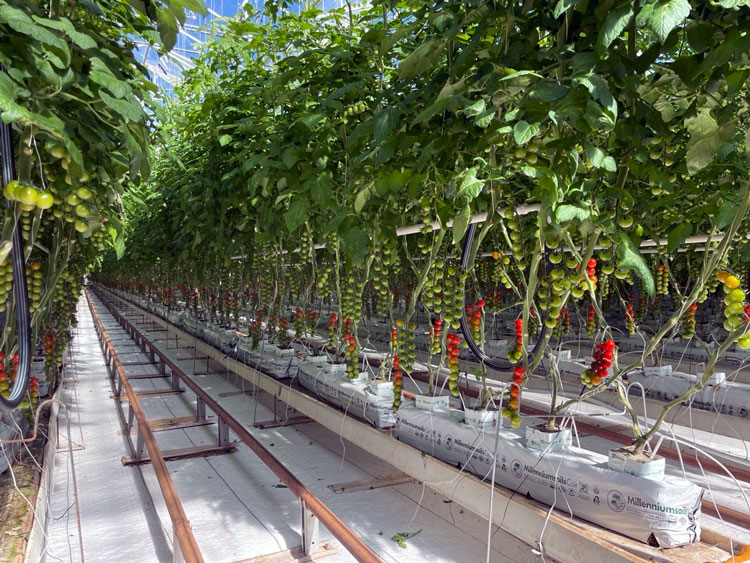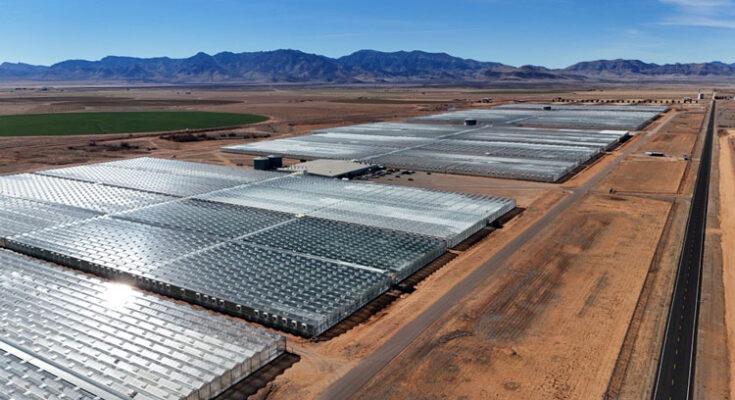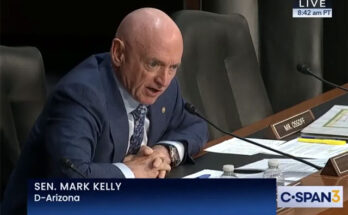Staff Reports
PHOENIX – On Monday, President Donald Trump announced the termination of the 2019 Tomato Suspension Agreement, which will impose a 17% tariff on fresh Mexican tomato imports. This decision, aimed at protecting U.S. tomato growers, has raised alarm in Arizona, particularly for companies like NatureSweet, a major tomato producer with operations in Bonita, Arizona, and Mexico. The move is expected to disrupt the agricultural sector, with significant economic repercussions for border states.
The Tomato Suspension Agreement, in place since 1996, allowed Mexican tomatoes to enter the U.S. tariff-free by setting minimum pricing to prevent dumping—selling produce at artificially low prices. The U.S. Commerce Department, citing complaints from American growers about unfair trade practices, withdrew from the agreement after negotiations with Mexico failed to yield a resolution. The new 17% duty, separate from Trump’s recently proposed 30% base tariff on Mexican goods, aims to level the playing field for domestic producers, particularly in Florida.
However, Arizona Governor Katie Hobbs, joined by business leaders and elected officials, sharply criticized the decision, calling it a “reckless trade war” that threatens Arizona’s economy. A Texas A&M University study estimates the tariff puts $8.33 billion in economic activity at risk and endangers over 50,000 agribusiness jobs across Arizona and Texas. These jobs span agriculture, logistics, warehousing, and retail, with border communities like Nogales, Arizona, heavily reliant on the tomato trade.
“Donald Trump’s reckless trade war is raising prices, threatening our economic growth, and killing jobs,” said Governor Katie Hobbs. “With his latest senseless decision to leave the Tomato Suspension Agreement, he is threatening to kill over 50,000 jobs between Arizona and Texas and forcing Arizonans to pay more at the grocery store, all to benefit Florida farmers. Arizona businesses and families will pay the price for this tax hike that is the latest step in the administration’s reckless trade war.”
NatureSweet faces significant challenges due to its departure from the agreement. The company, known for brands like Cherubs, imports a substantial portion of its tomatoes from Mexico, which supplies nearly 70% of the U.S. tomato market. The tariff is projected to increase retail tomato prices by 8.5% to 10%, according to Timothy Richards, a professor at Arizona State University’s Morrison School of Agribusiness. With field-grown tomatoes costing $1.70 per pound as of May 2025, this could strain consumers and businesses alike.

“Plentiful, high-quality, affordable food is dependent on strong regional supply,” said Mónica Villalobos, President and CEO, Arizona Hispanic Chamber of Commerce. “This is particularly true for fresh fruits and vegetables, including tomatoes. And the businesses in place to grow, sell, use, and move this commodity help power the Arizona economy, as well as elsewhere in the West. A tariff on Mexican tomatoes means fewer, more expensive, less flavorful tomatoes, and the loss of tens of thousands of jobs for our fellow Arizonans.”
For NatureSweet’s Bonita operation, the tariff creates a complex situation. While the duty may benefit U.S.-based growers by reducing competition from cheaper Mexican imports, NatureSweet’s cross-border supply chain could face higher costs. The company’s Mexican facilities, which produce vine-ripened tomatoes, may see reduced exports, potentially offsetting gains in Arizona. Just last year, NatureSweet celebrated the grand reopening of its Bonita facility and announced plans to hire 250 agricultural workers over the next three years, investing more than $5 million in the facility alone.
“After 30 years of consistency, this abrupt policy change will hurt our economy and negatively impact Arizona’s food system,” said Local First Arizona CEO Kimber Lanning. “The policy will shift costs to Arizona small businesses, restaurants, and grocers, which will raise prices, slow hiring, and threaten livelihoods. Consumers will see immediate price increases as small businesses and local communities ultimately pay the price.”
Local business leaders, including Todd Sanders of the Greater Phoenix Chamber, warn that the tariff could disrupt the stable, affordable tomato supply, impacting jobs in agriculture and related industries.
Arizona lawmakers, including Senator Mark Kelly and Representative Ruben Gallego, have long opposed terminating the agreement. Kelly, who visited Nogales earlier this year to hear from warehouse workers and small business owners, called the tariff a “billion-dollar tax on Arizona working families.” Gallego labeled it a “tax on working people,” highlighting the potential for higher grocery prices to burden consumers.
“These tomato tariffs are a billion-dollar tax on Arizona working families,” Kelly said. “They will raise food prices, threaten the jobs of thousands of warehouse workers and truck drivers in our state, and squeeze small businesses already struggling to keep up with rising costs.”
“We know that the administration has not found any violations and that terminating this agreement won’t solve the problems facing American growers. I’ve been pushing the administration to reverse course and keep this agreement in place, and I’ll keep fighting to protect Arizona families from the fallout of this reckless decision.”
“This decision will damage trade imports and have severe consequences for Nogales in revenue, employment, and trade,” said Nogales Mayor Jorge Maldonado. “This is detrimental for the city, state, and country, and negatively affects U.S. consumers and businesses. We must not forget that Mexico feeds America through the border of Nogales, Arizona, and has been doing so for the last 100 years. It is up to Arizona and Sonora to challenge this decision and make sure Washington is aware of these impacts.”

However, Robert Guenter, executive vice president of the Florida Tomato Exchange, said that ending the suspension agreements was long overdue.
“For more than three decades, five consecutive agreements have failed to stop the illegal dumping of unfairly priced tomatoes into the U.S. market from Mexican producers,” he said in prepared comments. “This dumping has devastated the U.S. tomato industry: More than 60% of U.S. tomato growers have gone out of business since 2000, and the U.S. market share has dropped from 80% to 30% during that time.”
That sentiment is not shared equally with the rest of the country. The U.S. Chamber of Commerce, alongside 30 business groups, urged Commerce Secretary Howard Lutnick to maintain the agreement, noting that the tomato trade generates $8.3 billion in economic benefits and supports 50,000 U.S. jobs. Critics fear Mexico may retaliate with tariffs on other U.S. agricultural exports, further complicating trade relations.
“The decision to rescind the Tomato Suspension Agreement (TSA) would have far-reaching and damaging consequences for our economy, workforce, and American families. The TSA has long ensured a stable and affordable supply of high-quality tomatoes, supporting jobs across the agriculture, logistics, retail, and food service industries. Without it, tariffs and supply disruptions will raise prices for consumers and threaten thousands of jobs in states like Arizona,” said Greater Phoenix Chamber President and CEO Todd Sanders. “This agreement is a model of fair trade, balancing access to Mexico’s ideal growing conditions with protections for U.S. growers and consumers. Ending it risks destabilizing a critical food supply chain at a time when Americans are already grappling with inflation.”
While Florida growers, represented by the Florida Tomato Exchange, hailed the tariff as an “enormous victory” for American farmers, Arizona’s perspective differs. The state’s agricultural sector, deeply integrated with Mexican imports, faces uncertainty.
“I am not sure people understand the full significance of this,” said Chamberlain Distributing President and Owner Jaime Chamberlain. “It may seem simple to say that the U.S. is withdrawing from the agreement, but there needs to be consideration for the dozens, if not hundreds, of Arizona and U.S. companies and the thousands of local and regional jobs that will be lost if this is allowed to happen. And when you combine that impact with the much higher prices that consumers will pay for quality tomatoes year-round, it is hard to understand why the U.S. has taken this posture.”
As the tariff takes effect, Arizona’s tomato growers, including NatureSweet, must navigate a shifting landscape. While intended to protect domestic agriculture, the policy risks higher costs, job losses, and strained trade ties, leaving Arizona’s agribusiness community bracing for impact.










